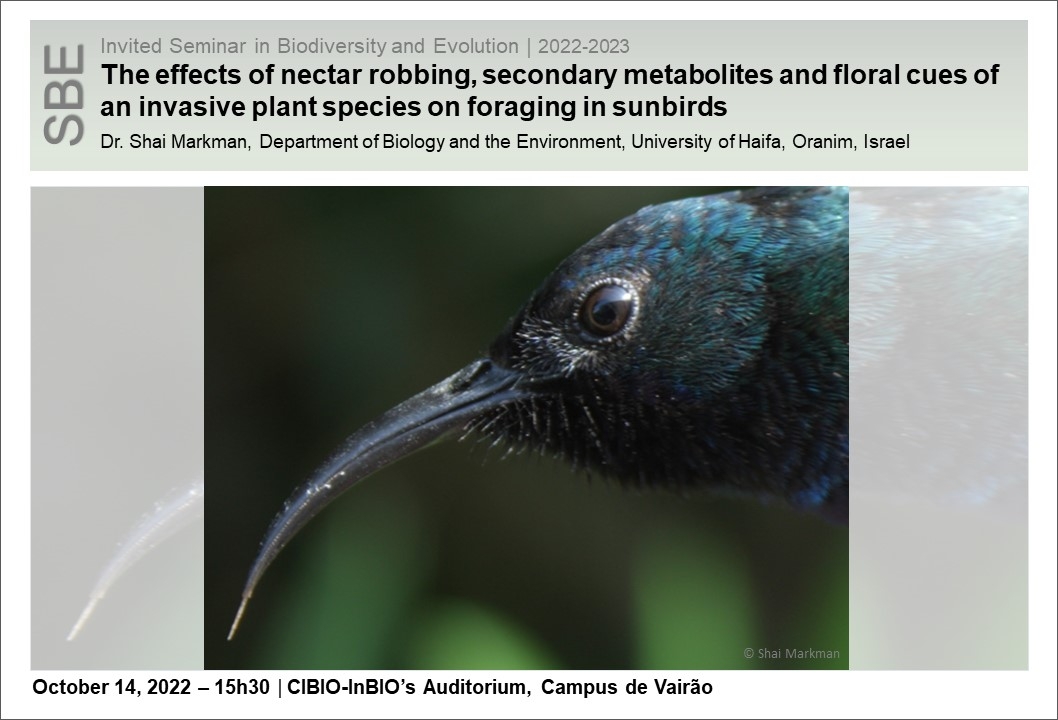The effects of nectar robbing, secondary metabolites and floral cues of an invasive plant species on foraging in sunbirds
14 Oct 2022 - Dr. Shai Markman, Department of Biology and the Environment, University of Haifa, Oranim, Israel | 15h30 - CIBIO-InBIO’s Auditorium, Campus de Vairão

INVITED SEMINAR IN BIODIVERSITY AND EVOLUTION
Plant secondary metabolites (PSMs), such as alkaloids, are often found in many parts of a plant, including flowers, providing protection to the plant from various types of herbivores or microbes. PSMs are also present in the floral nectar of many species, but typically at low concentrations. Nectar robbers often damage floral tissue to access the nectar. By doing so, nectar robbers may initiate an increase of PSMs in the floral nectar. However, an evidence-based knowledge is lacking as to the effects of nectar robbing on PSM levels and in turn the effects of these chemicals on foraging decision making in pollinators. Here, I addressed the question of whether PSMs in the floral tissue are immediately being released into the floral nectar following nectar robbing. I further asked whether the natural concentrations of the alkaloids, nicotine and anabasine, found in tree tobacco, Nicotiana glauca, a world-wide invasive species, in the nectar affect foraging performance in Palestine sunbird, Nectarinia osea, bird pollinators that use the plant's nectar as a food source. In my lecture, I will present my findings with regard to the effects and costs of nectar robbing. Then, I will demonstrate the effects of these alkaloids on sunbird foraging performance through their accuracy at distinguishing between rewarding and non-rewarding flowers. To conclude, I will state the importance of the effects of PSMs on the behavior, evolution and ecology of bird pollinators.
In the Markman laboratory, we study behavioral ecology strategies while using birds as model systems. We quantify various behaviors such as foraging, parental care and testing learning and cognitive abilities in order to understand the evolutionary biology roots of these behaviors.
[Host: Gonçalo Cardoso, Behavioural Ecology - BE, Invasion Science - InvasionS]